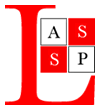Vous êtes ici :
- Accueil
- Actus
- Publications
“Policy Advise Paradoxes in France. So Many Advisors, Experts and Courtesans Speaking (Un-)True to Power in a Vertical ‘Republican Monarchy’”
J.-M. Eymeri-Douzans, “30: Policy Advise Paradoxes in France. So Many Advisors, Experts and Courtesans Speaking (Un-)True to Power in a Vertical ‘Republican Monarchy’”. In G. Capano, J. Craft, & M. Howlett (Eds.). The Routledge Handbook of Policy Advisory Systems. London: Routledge, 2026, p. 435-457.
ISBN 9781032737454
In this chapter, we defend and illustrate the main idea that adopting a PAS perspective on the governing and governance of contemporary France has a strong heuristic potential to better comprehend and explain the inherited continuities and real changes of the complex institutional politico-administrative apparatus of legitimate domination – the French State, to oversimply – of its evolving governing interactions and governance arrangements with major stakeholders from the society and economy, and of the actual content and quality of the public policies they co-produce – or fail to produce – all together (Craft & Wilder 2017; Capano, Howlett, Pal & Ramesh 2023), shaping in so doing a French ‘policy style’ that can be ideal-typified (Richardson 2013; Howlett & Tosun 2021). Other chapters in the present opus show how PASs develop and evolve differently in diverse political regimes, administrative traditions and country-specific governance arrangements: the supply, demand, and real influence of advice activities vary accordingly. In such a comparative perspective, and according to the two central dimensions of PAS structuration identified by the co-editors of the present Handbook, i.e. the nature of external actors and their autonomy versus internal ones and vice versa, it appears that France is a case of a ‘balanced policy advisory system’, where policy influence is not mainly externally driven as in the USA, nor internally driven as in authoritarian regimes but happens to be a dynamic struggle-and-compromise interplay
between the high autonomous capacity of external, non-State knowledge producers and advice providers and the same high autonomous capacity of internal, State experts and advisors to speak – true or untrue – to power and make it listen.
